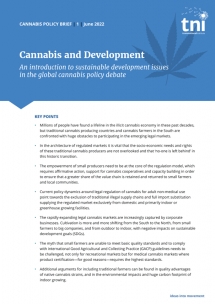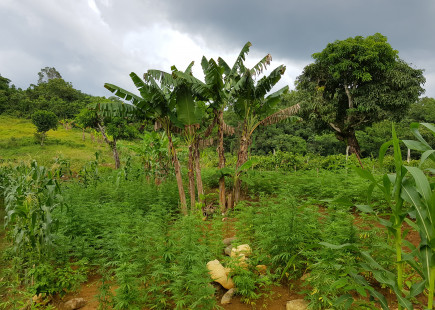Ideas into movement
Boost TNI's work
50 years. Hundreds of social struggles. Countless ideas turned into movement.
Support us as we celebrate our 50th anniversary in 2024.

Millions of people have found a lifeline in the illicit cannabis economy in these past decades, but traditional cannabis farmers in the South are confronted with huge obstacles to participating in the emerging legal markets. The rapidly expanding legal cannabis markets for medical and adult use are increasingly captured by corporate businesses. Cultivation is more and more shifting from the South to the North, from small farmers to big companies, and from outdoor to indoor, with negative impacts on sustainable development goals. This first TNI Cannabis Policy Brief argues that it is vital that the socio-economic needs and rights of traditional cannabis producers are not overlooked and that ‘no-one is left behind’ in this historic transition.


Cannabis cultivation, Jamaica, 2019, TNI/Martin Jelsma